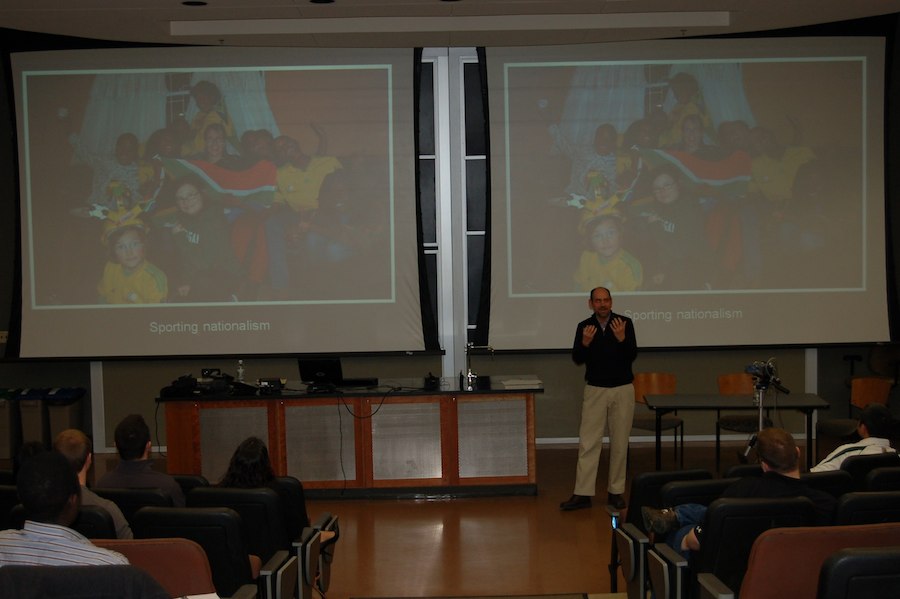
On Friday, March 11, the Institute for the African Child and the Center for Sports Administration are hosting the 7th Sports in Africa symposium at Ohio University. The program — including my keynote address — will be webcasted from 1 p.m. to 4:30 p.m (GMT -5) on https://adobeconnect.oit.ohio.edu/sportsinafrica2011/
Author: Peter Alegi
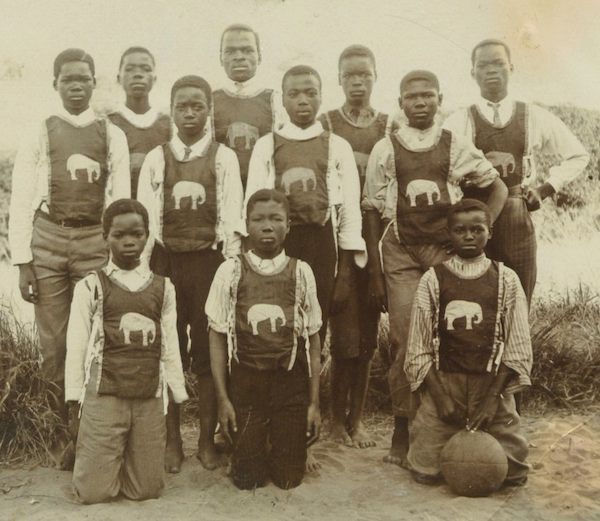
While putting together a post on Gaddafi and football, I received a poignant reminder of the century-long history of African political leaders’ involvement in the game. Richard W. Msimang, a founder of the African National Congress in South Africa, played football in school in South Africa and in Britain — where he lived for a decade — and then in 1929 was a founder of one of Johannesburg’s leading black football associations. A July 1913 newspaper article celebrating Msimang’s admission as an Attorney of the Supreme Court of South Africa includes the following passage:
Those who have met and seen Mr. Msimang have noticed what a remarkable popular and genial personality he bears. We learn that from boyhood at Emakosini, and at Mr. Dube’s School and Healdtown, in or out of school, he was always popular and well liked by all the boys who knew him. Even at Queen’s College [in Britain] he was very popular and respected by the boys with whom he studied or played.
In the sphere of games he was equally as successful as in education. At Ohlange he played for the 1st XI, and also at Healdtown he was a member of the “Healdtown Swallows” Eleven. At his first football season in England, he got his place in the School first Eleven outside left, where he played with great distinction until he left the school to start his professional training. He then played Rugby football when, during his first season on the new code, he got a place at outside-half in the 1st XV of the Taunton Rugby Football Club, and played continuously for the club. During his last season he was Vice-Captain of the team. The Taunton Rugby Club is one of the first class Rugby teams in the West of England and it is interesting to note that our new lawyer, whether playing for the school or the town team, was always the only man of colour in the game. Again the Taunton Rugby Club appreciated Mr. Msimang’s service so much that when leaving Taunton for his homeland the Club presented him with a gold watch chain and pendant inscribed in commemoration of his association with the Club. Mr. Msimang has now no intention to play football again.
Source: “The New Solicitor: Mr. R. W. Msimang”, Abantu Batho 3? July 1913 [reprinted in Tsala ea Batho 5 July 1913]. My thanks to Peter Limb for bringing this article to my attention.
Further reading: Laduma! and African Soccerscapes
Blogging History: The Case of Isiah Stein
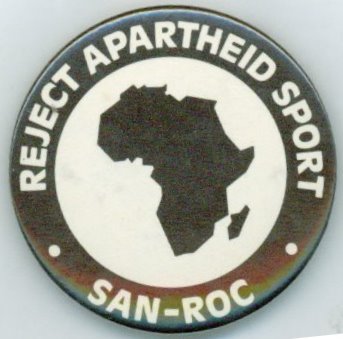
When Chris De Broglio told me the sad news of Isiah Stein’s passing I knew very little about this brave Capetonian activist. All I could remember was that he was an exiled South African, a former executive committee member of SANROC, the heart and soul of the anti-apartheid sport boycott, and that his sons had played professional football in Britain.
Then Omar Badsha, an ex-activist and founder of South African History Online, wrote a strange comment to my post. He asserted that Stein was white and could not have been incarcerated on Robben Island, a prison reserved for black political activists.
Based on the skin color of the Stein footballers, I had assumed their father was black (in the Black Consciousness sense of the word). In his comment to my post, Howard Holmes, director of the Sheffield-based Football Unites, Racism Divides (FURD), seemed bewildered by the confusion about Stein’s racial identity. After further research, I confirmed that the Cape Town-born Stein was classified “Coloured” (mixed race) under apartheid’s racial classification system. In other words, he was definitely not white.
But had he done time in the infamous apartheid prison with Nelson Mandela in the mid-1960s? This online list of Robben Island prisoners does not have Stein’s name. I consulted memoirs of prisoners and other published sources to no avail. I turned to colleagues intimately familiar with the Robben Island/Mayibuye Archives at the University of the Western Cape, but came up empty.
To resolve the matter, I sought the help of a former political prisoner who survived twelve years on the island. He sent a swift, courteous, and unambiguous reply: “Isiah was definitely not on Robben Island during the period [between] 1964 and 1975.”
I am struck by how a simple “hamba kahle” (Go Well, Rest in Peace) post in honor of a sport and human rights activist took on a life of its own. Blogging, memory, and the craft of history combined together to shed some new light on a not-so-ordinary South African and, at the same time, revealed how the history of the liberation struggle in South Africa is far from complete and seldom free of controversy and contestation.
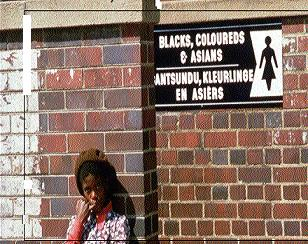
A stalwart of the anti-apartheid sport boycott movement, Isiah Stein, has passed away in the UK. After serving time in prison in the mid-1960s [perhaps not with Nelson Mandela, as noted by Omar Badsha’s comment to my earlier post], Stein left South Africa for Britain where he worked tirelessly for the exiled South African Non-Racial Olympic Committee (SANROC).
Three of his sons became professional footballers in England; Brian had an illustrious career at Luton Town and earned an England cap in 1984. Playing for Chelsea, Mark once scored in seven consecutive matches (a record which stood until 2002); Edwin meanwhile played for Barnet.
It is little-known stories like those of the Stein family from Cape Town that remind us of the dignity, humility, hard work, and sacrifice of individuals who fought relentlessly to advance the cause of sport and human rights in South Africa and beyond. Rest in Peace Isiah.
Click here for article on Stein’s passing by Kick it Out.
P.S. I will soon post a review of the “Offside” exhibition at the District Six Museum in Cape Town, which prominently features the Stein family and football’s role in fighting racism.
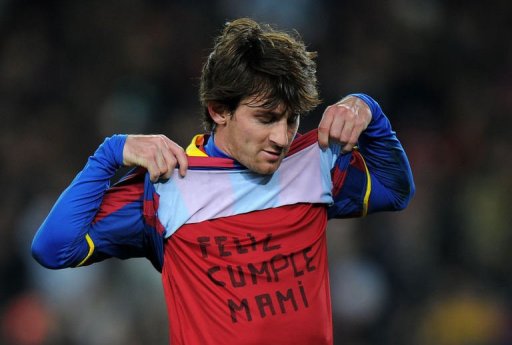
The Spanish Football Federation fined Lionel Messi between 2000 and 3000 euros for revealing a t-shirt during a goal celebration that wished his mother a happy birthday. The referee did not issue the world player of the year a yellow card, but noted this “crime” in his match report.
In today’s Disneyball, communicating anything other than an officially sanctioned marketing message or corporate sales pitch is not tolerated. Shame on Spain — reigning world champions — for punishing freedom of speech and insulting our core humanity.

Mzansi Football and Kickoff.com report that the captains and coaches of South Africa’s men’s and women’s national teams failed to cast their vote for FIFA’s Golden Ball as the World’s Player of the Year awards are now known. According to the governing body, the 2010 World Cup hosts were one of just a handful of countries (out of 208) that did not vote. The awards went to Lionel Messi for the second year in a row and Marta for the fifth (?!) year in a row.
“It is the latest botch up by SAFA since the World Cup and makes a mockery of claims the association’s new leadership would bring a new efficiency to the running of the game,” writes kickoff.com. “They failed to enter the country’s teams in the All-Africa Games qualifiers and had to scramble to the Confederation of African Football in Cairo to get a backdoor entry when Namibia withdrew.” Read the full, thoroughly embarrassing details here.

Happy New Year to all!
Back after a month-long break, we are pleased to report that our very own Sean Jacobs made it into the opinion pages of The New York Times yesterday (Sunday, 2 January 2011) as part of the ‘Around the World in 12 Months’ feature. (Some of you may recognize some of the ideas from Sean’s ‘Africa is a Country’ blog). My favorite part is his daughter’s memory of the 2010 World Cup. Click here to read Sean’s entry about the 2010 World Cup in South Africa.